Recognising prompts and how to exit
When working at the command line, you might not recognise your prompt. On this page you will find tips to discover where you are and how to exit if you are not where you want to be.
Shell
-
If your shell prompt is
$you are atbash.
To exit from
bashtypeexitand pressENTER. -
If your shell prompt is
>you may have typed'or", to specify a string, as part of a shell command but have not typed another'or"to close the string.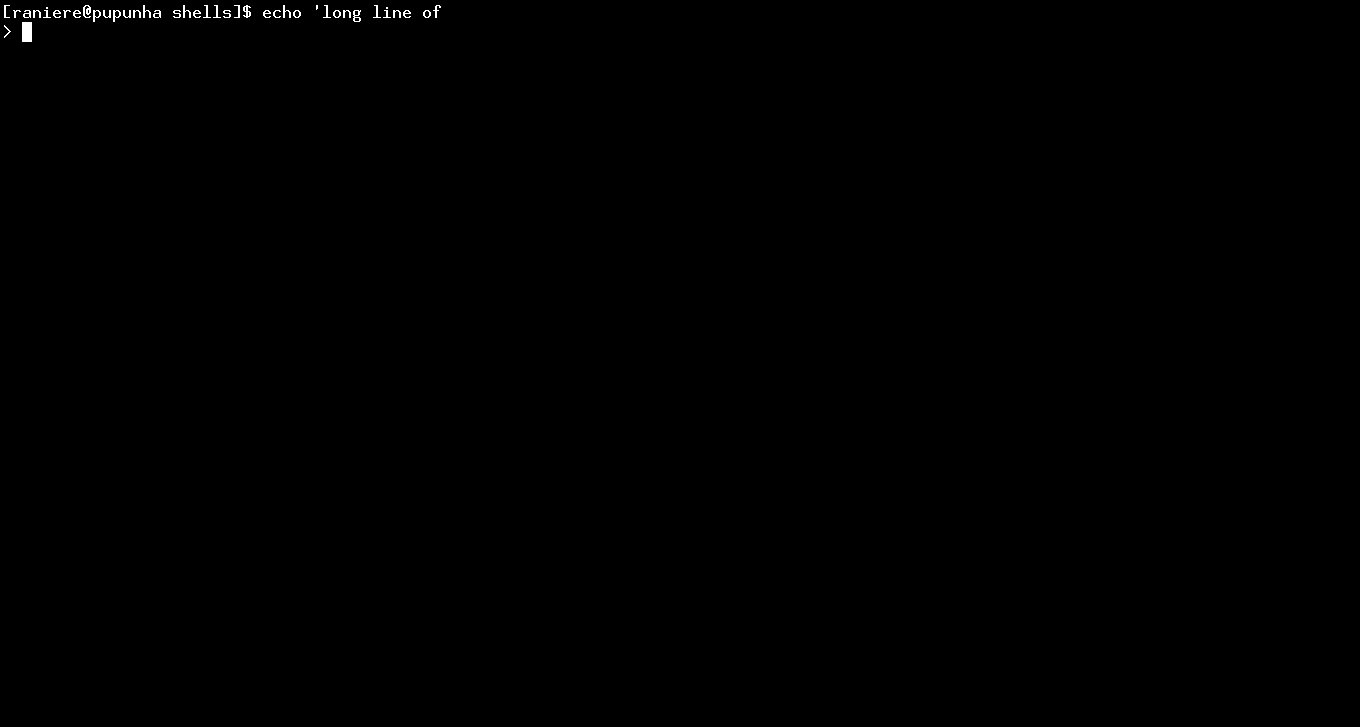
To interrupt the current command press
CTRL-C. -
If the bottom-left of your shell window shows
--More--you are viewing a file usingmore.
To exit from
morepressq. -
If the bottom-left of your shell window shows
filename,:or(END)you are viewing a file usingless.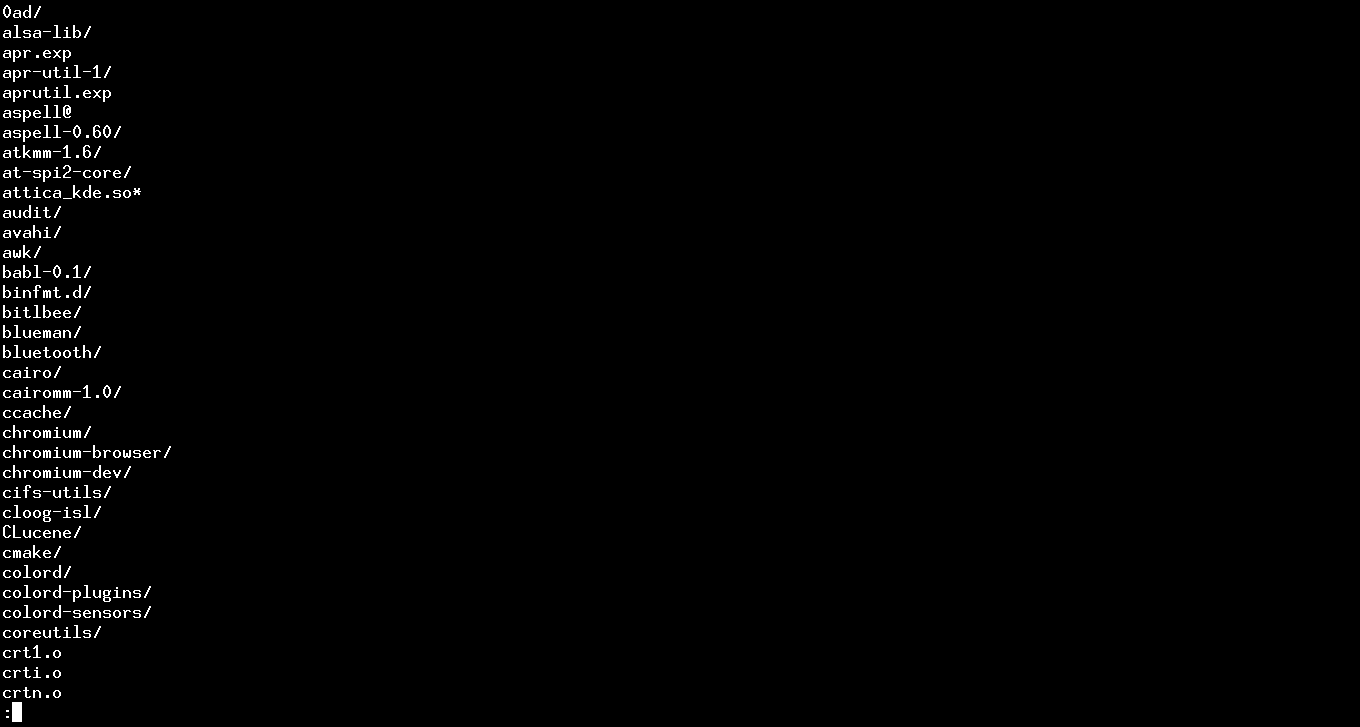
To exit from
lesspressq. -
If the bottom-left of your shell window shows
Manual pageyou are viewing amanpage.
To exit from
manpressq. -
If the top of your shell window shows “GNU nano” you are in the
nanotext editor.
To exit from
nanopressCTRL-X. If you have unsaved changes, you will be asked to save these - pressyto save, ornto quit without saving. -
If your shell window shows
~at the beginning of each lines you are in thevitext editor.
To exit from
vitype:q!to exit without saving. If this text just appears on screen then pressESCthen type:q!. -
If the bottom of your shell window shows
(Fundamental) ----you are in theemacsorxemacstext editor.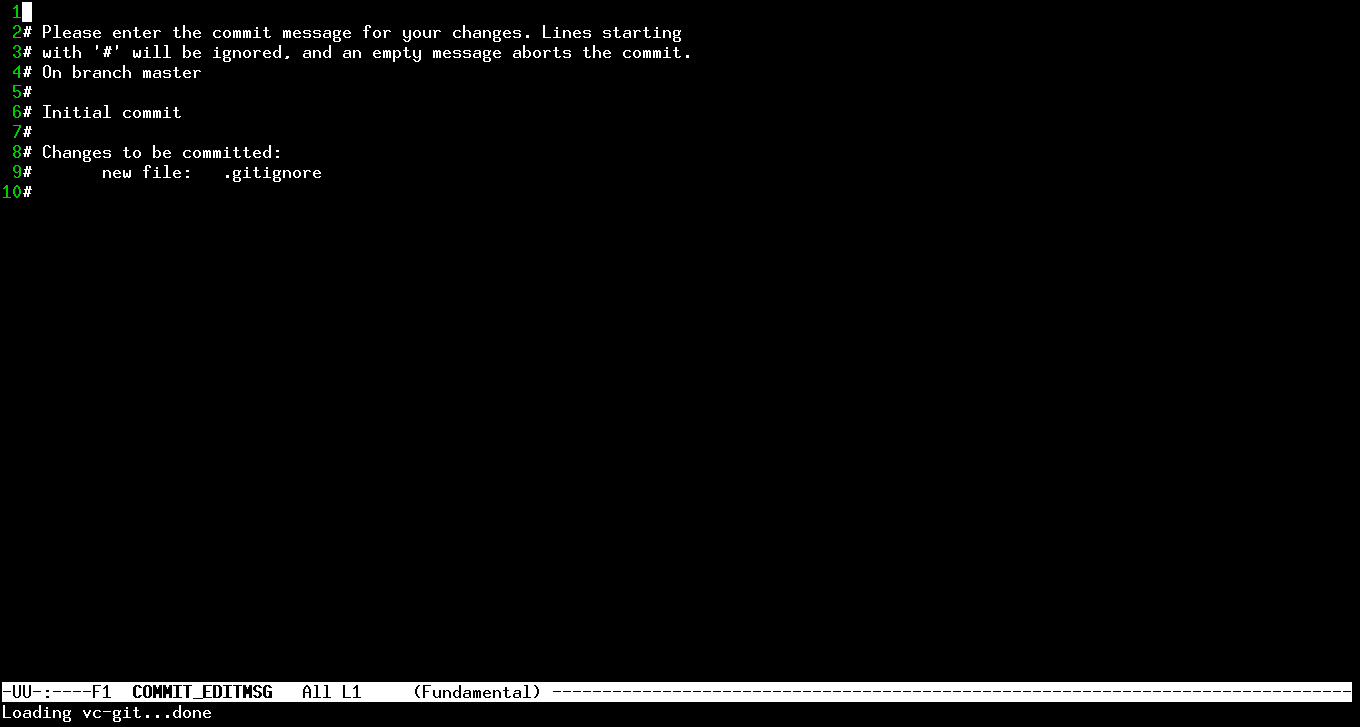
To exit from
emacsorxemacspressCTRL-X CTRL-C. If you have unsaved changes, you will be asked to save these - pressyto save, ornthen typeyesto quit without saving.Calling GUI from console
Emacs has a graphical user interface mode. When you call it from the prompt, the prompt will stop responding to your commands until you close Emacs.
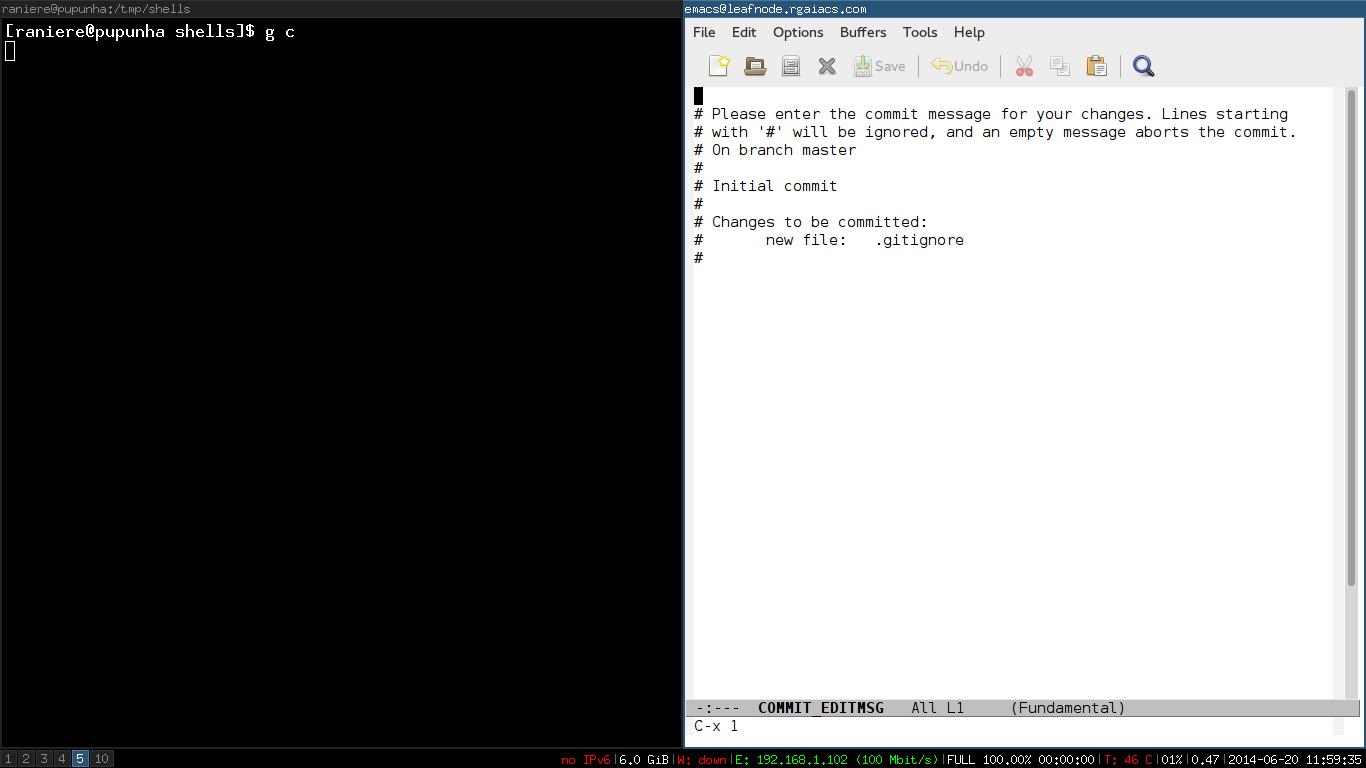
Python
-
If your shell prompt is
>>>you are inpython.
To exit from
pythontypeexit()orCTRL-D. -
If your shell prompt is
...you have an unclosed environment insidepython.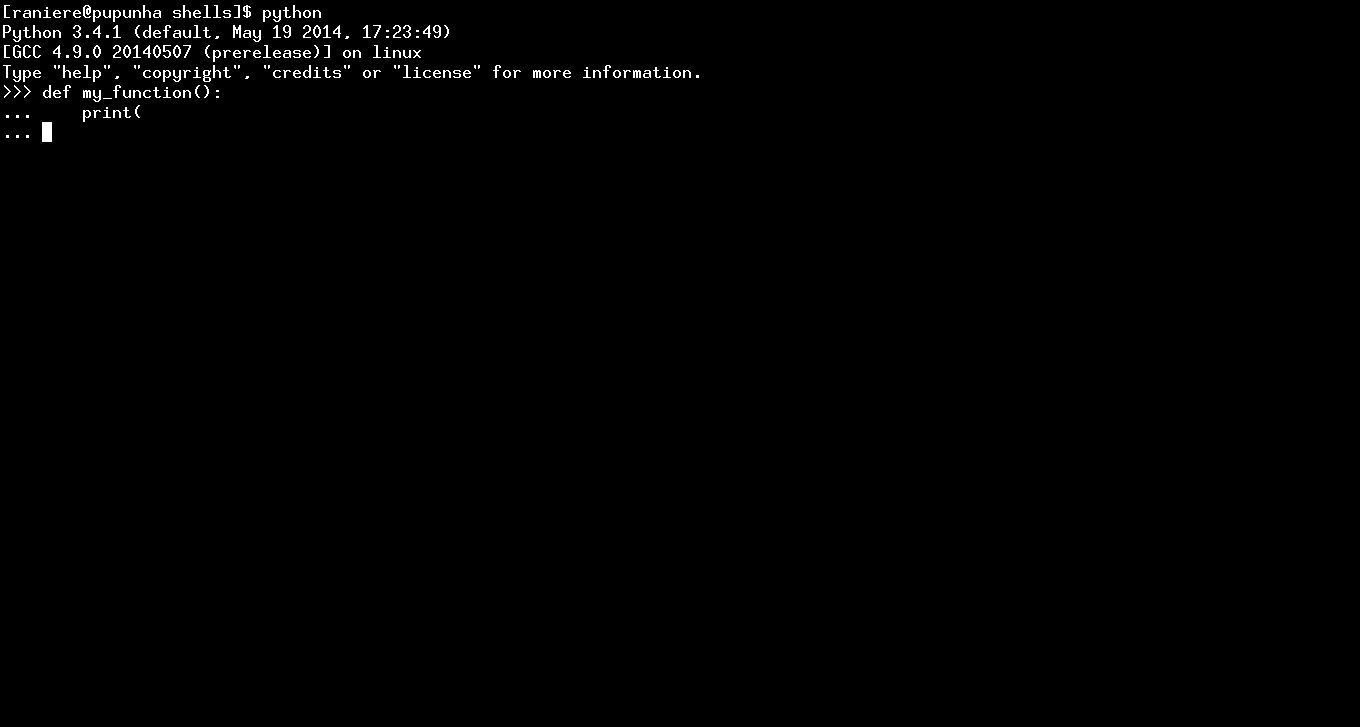
To interrupt the environment type
CTRL-C. -
If your shell prompt is
In [123]:you are inipython.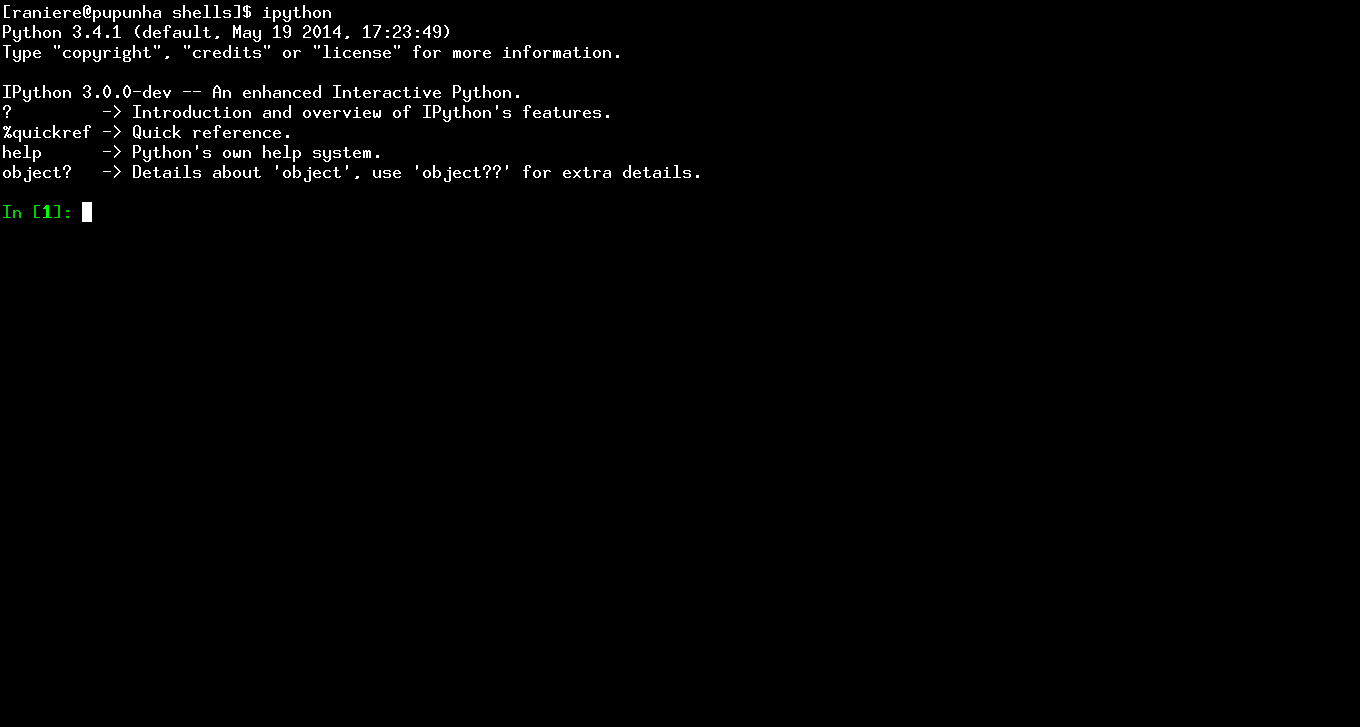
To exit from
ipythontypeexit(), orCTRL-Dthen pressy. -
If your shell prompt is
...:you have an unclosed environment insideipython.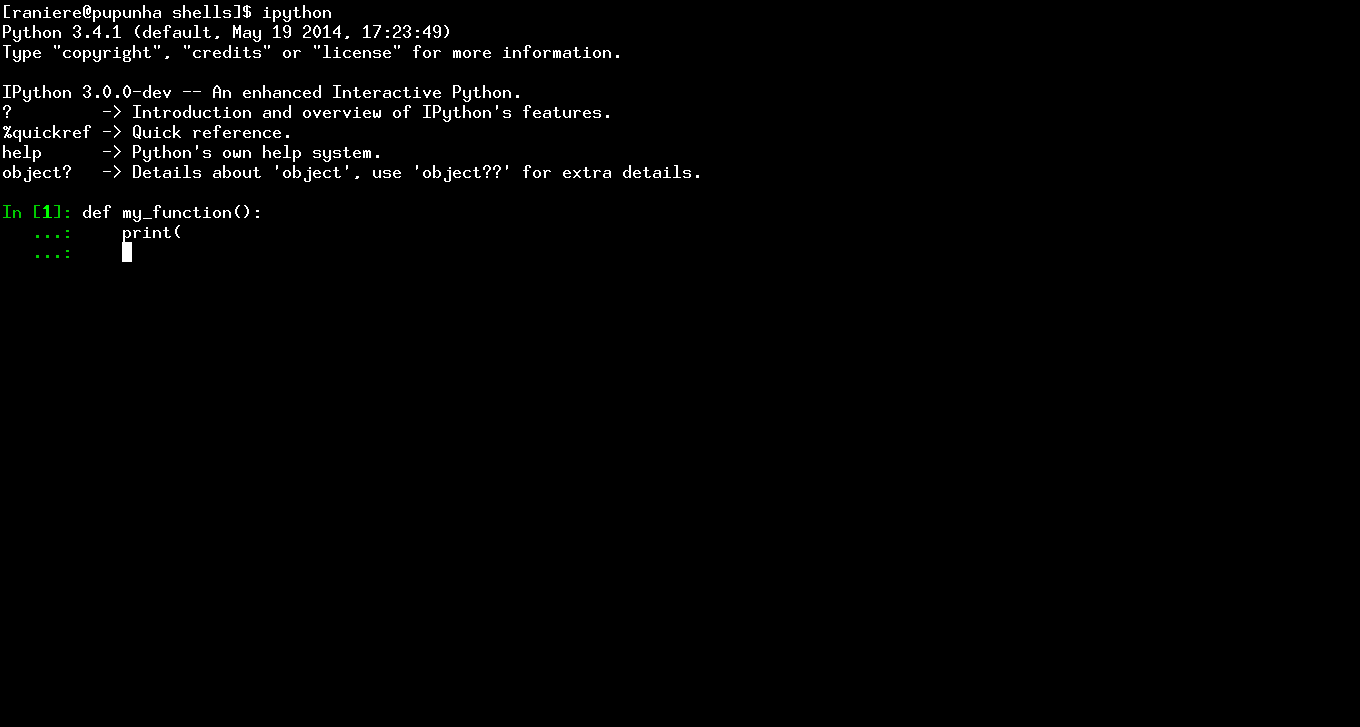
To interrupt the environment type
CTRL-C.
R
-
If your shell prompt is
>you are inR.
To exit from
Rtypeq(). It will ask if you want to save the workspace and you should typeyfor yes andnfor no. -
If your shell prompt is
+you have a unclosed environment insideR.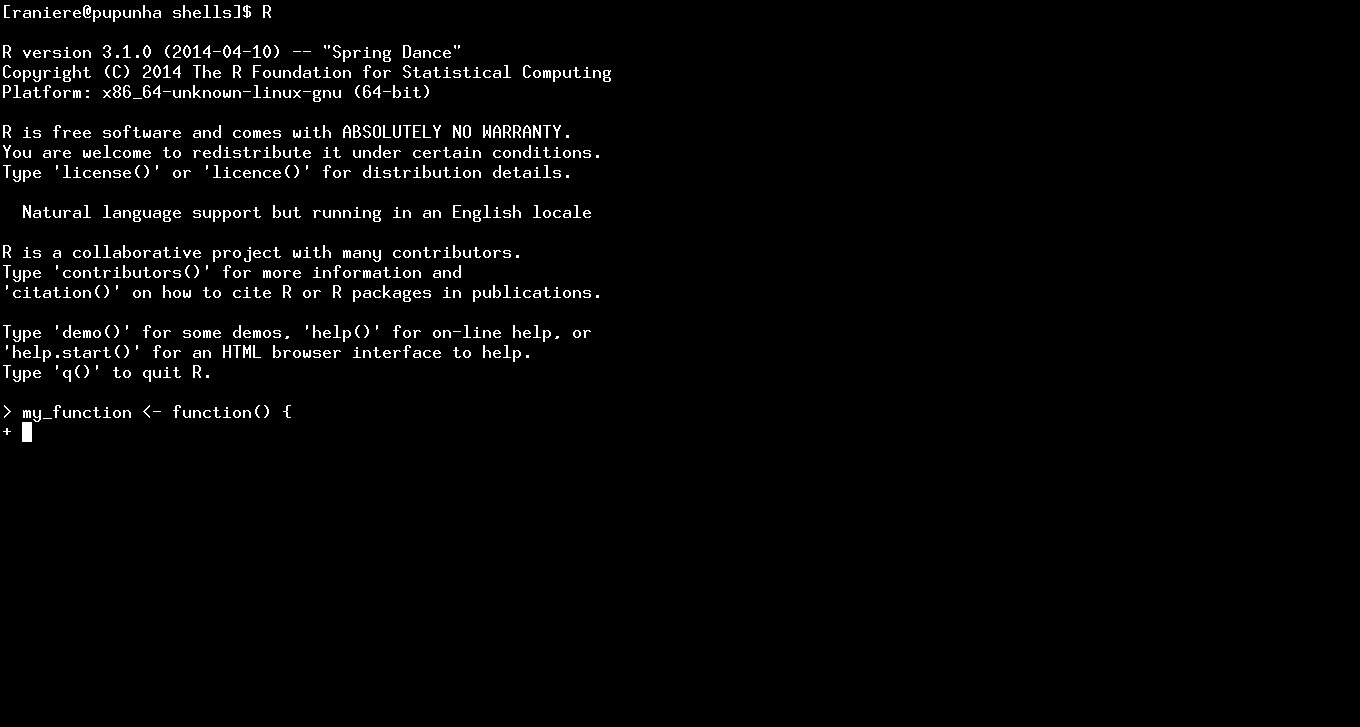
To interrupt the environment type
CTRL-C.
